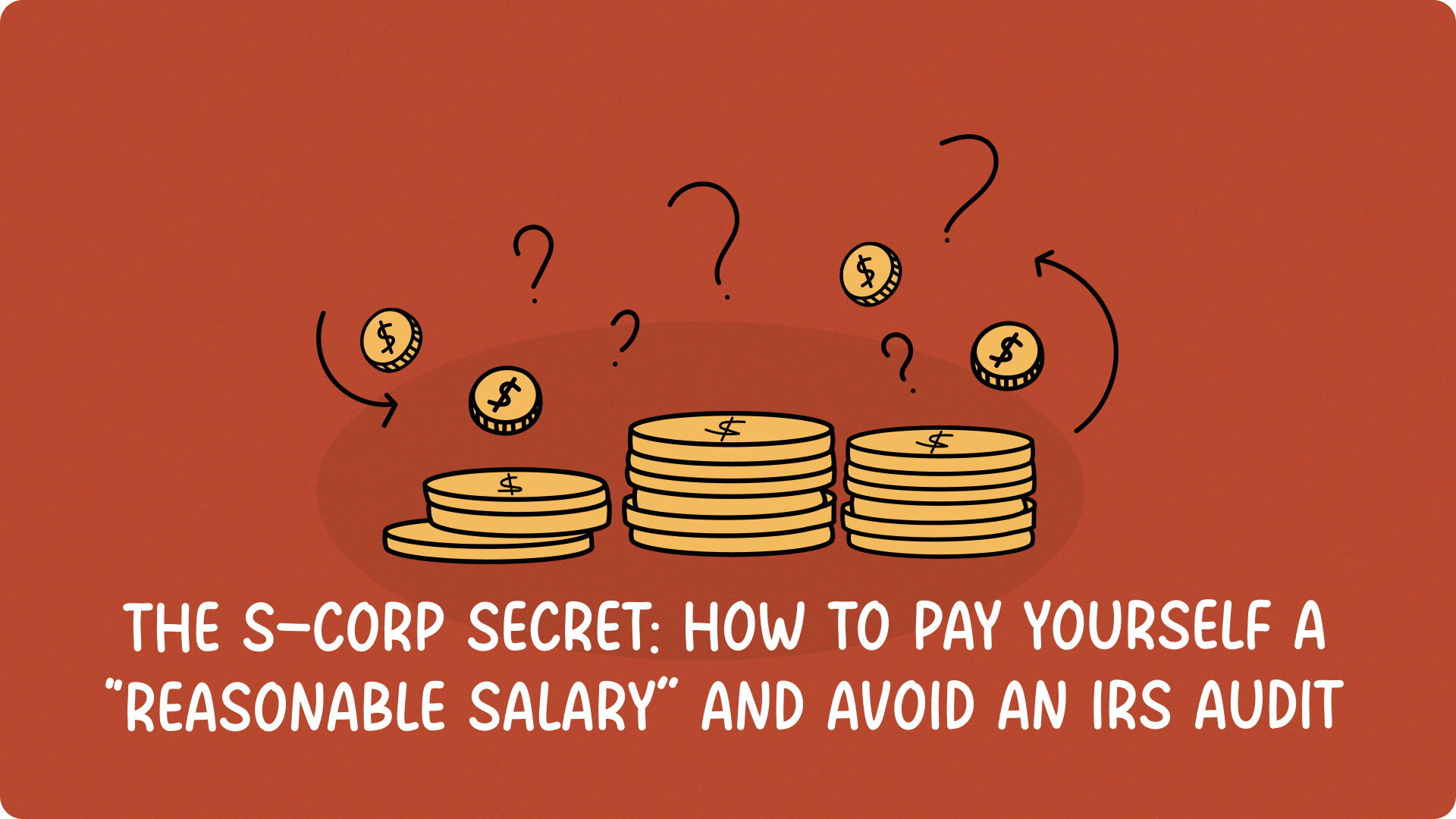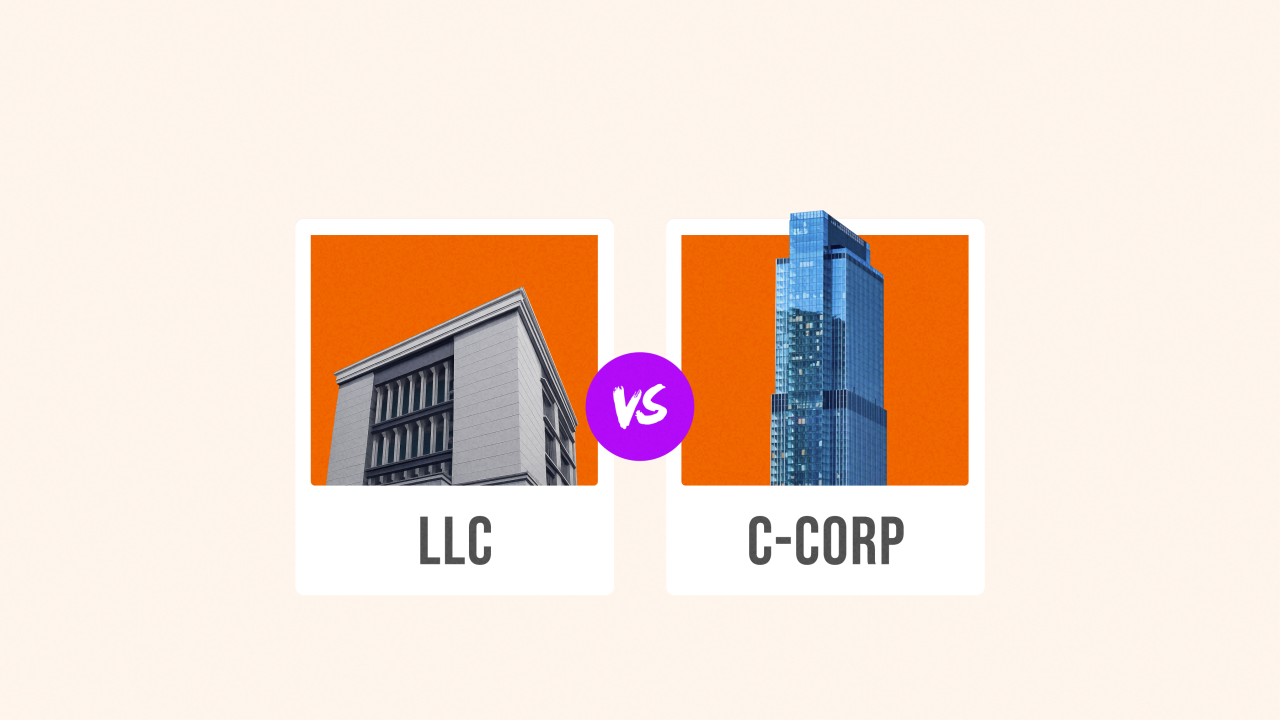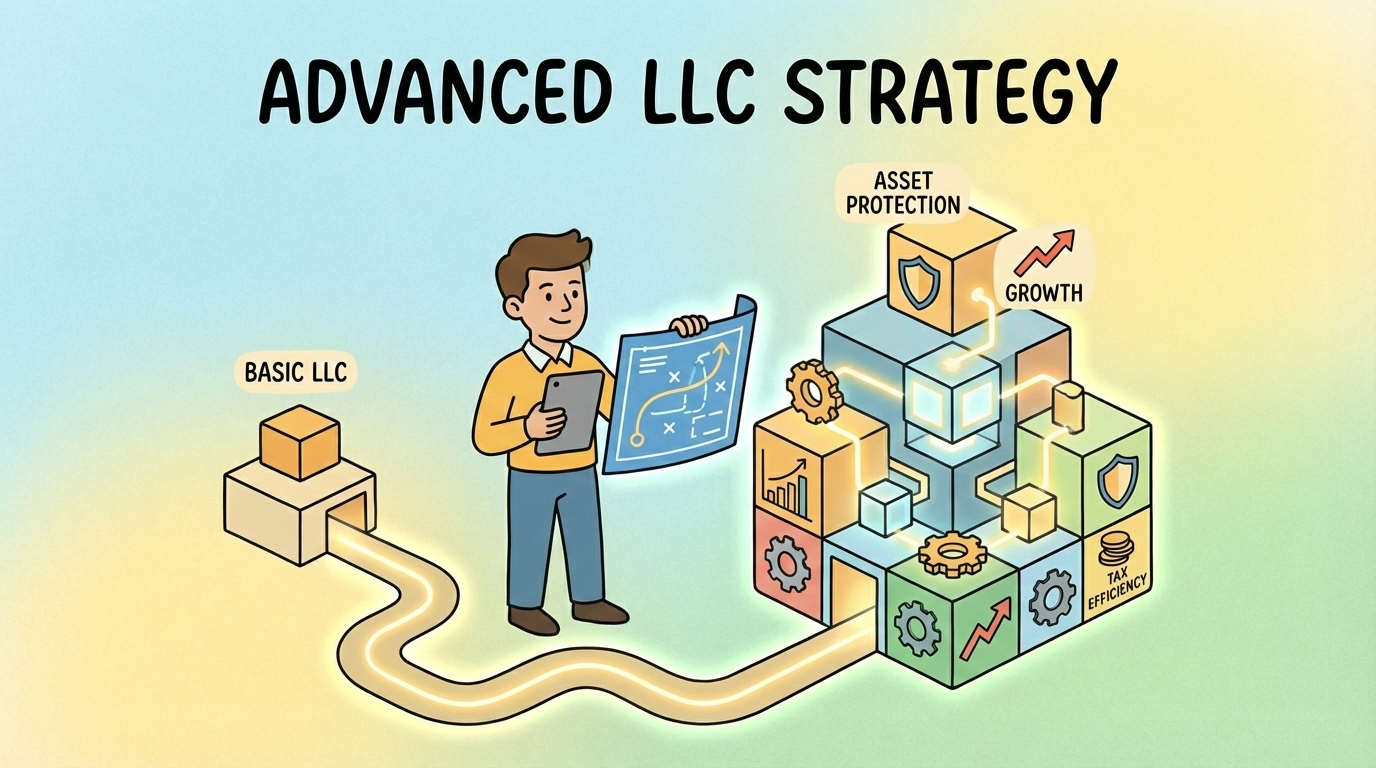Deciding to become an S-Corp is a smart move for many freelancers and small business owners. It’s a way to save on self-employment taxes, allowing you to keep more of your hard-earned money. But here’s the catch: you can’t just pay yourself a token salary and take the rest as tax-free distributions. The IRS is watching, and underpaying yourself is one of the fastest ways to land on their audit list.
With great tax savings comes great responsibility. The IRS has a strict rule you can’t afford to ignore: you must pay yourself a “reasonable salary.”
Paying yourself fairly isn’t just a good idea—it’s an IRS requirement. The agency is actively cracking down on S-Corps that pay owners a nominal salary just to avoid payroll taxes. Getting this wrong can lead to serious penalties and a lot of unnecessary stress. This guide will walk you through exactly what a reasonable salary means for your business, providing the facts and advice you need to stay on the right side of the law.
Table of Contents
- Understanding Your Tax Advantage
- How the IRS Defines “Reasonable”
- Illustrating the Impact: A Tax Comparison
- The High Cost of Non-Compliance
- Frequently Asked Questions (FAQ)
- Ready to Simplify Your S-Corp?
Understanding Your Tax Advantage
To grasp the importance of a reasonable salary, you first need to understand the S-Corp tax advantage. As a sole proprietor, your entire business profit is subject to a 15.3% self-employment tax.
An S-Corporation is a “pass-through” entity, meaning it does not pay federal income tax on its profits. Instead, the profits are passed through to you, the owner, to be taxed on your personal return. You can legally split your income into two categories:
- Salary: This is the portion of your income you pay yourself as an employee of your own company. It is subject to payroll taxes (FICA).
- Distributions: This is the remaining business profit that is passed through to you as a shareholder. The key benefit is that distributions are not subject to payroll taxes.
This powerful tax strategy hinges entirely on your ability to prove that the salary you pay yourself is “reasonable” in the eyes of the IRS.
How the IRS Defines “Reasonable”
The IRS doesn’t provide a magic number or a fixed formula. You may have heard advice about splitting your income using a simple ratio, like 50/50 or 60/40. The IRS does not approve of these simple formulas, as they don’t reflect the true market value of the work you do. Instead, they require your salary to be what you would pay an unrelated person to perform your job.
In fact, IRS guidance and case law point to nine factors they often weigh: your training and experience, duties and responsibilities, time devoted to the business, dividend history, payments to non-shareholder employees, timing and manner of bonuses, comparable industry salaries, use of a formula for determining pay, and your business’s overall performance.
In practice, these boil down to a few key areas:
- Your Duties and Responsibilities: What does your job entail? Your salary should reflect all the roles you perform, from managing client relationships and selling your services to doing the actual work of the business.
- Your Qualifications and Experience: Your education, certifications, and years of experience directly impact your market value. A highly skilled professional can justify a higher salary.
- The Time You Work: The amount of time you devote to the business is a key factor. Full-time work demands a full-time salary.
- Company Performance: Your salary should be in line with your business’s overall revenue and profitability. You can’t justify a low salary if your company is making a substantial profit.
- Comparable Market Data: This is your strongest evidence. The IRS expects you to benchmark your salary against what similar professionals in your industry and geographical area are paid.
Illustrating the Impact: A Tax Comparison
To see the real-world difference, let’s look at two freelance photographers who both operate as S-Corps and net $90,000 in profit.
| Photographer A (Reasonable Salary) | Photographer B (Unreasonably Low Salary) | |
| Net Business Profit | $90,000 | $90,000 |
| Salary Paid | $55,000 | $25,000 |
| Owner’s Distribution | $35,000 | $65,000 |
| FICA Tax on Salary (15.3%) | $8,415 | $3,825 |
| FICA Tax on Distribution | $0 | $0 |
| Total FICA Tax Bill | $8,415 | $3,825 |
Photographer B’s total FICA tax bill is much lower, but by paying an unreasonably low salary, they expose themselves to an IRS audit. If an audit occurs, the IRS can reclassify the distributions as wages and require them to pay the back taxes, plus penalties and interest. This proves that a defensible salary is the safest and smartest long-term strategy.
The High Cost of Non-Compliance
Ignoring the reasonable salary rule is a serious risk. If the IRS audits your business and finds your salary to be unreasonably low, they can reclassify your distributions as wages. This will lead to:
- Back Taxes: You’ll be forced to pay the unpaid payroll taxes (both the employee and employer portions) on the reclassified amount.
- Penalties and Interest: The IRS will add penalties and interest to your back taxes, which can quickly turn a few thousand dollars into a massive bill.
- Revocation of S-Corp Status: In the most extreme cases, the IRS has the authority to revoke your S-Corp election, subjecting you to even more complex tax issues.
There are plenty of cautionary tales. In Barron v. Commissioner, an Arkansas accountant paid himself no salary at all, taking all earnings as distributions. The IRS determined a reasonable salary should have been around $45K–$49K, and he was hit with back taxes. Similarly, in David E. Watson, P.C. v. United States, an Iowa CPA set his salary at just $24,000 while taking over $200,000 in distributions. The court sided with the IRS, which reclassified $175,000 as wages, resulting in nearly $27,000 in payroll taxes owed.
The IRS has publicly stated that S-Corp owner compensation remains a “compliance priority” in 2025. They continue to flag unusually low salaries as an audit trigger — a reminder that this issue is very much alive today.
Frequently Asked Questions (FAQ)
1. Can I pay myself only distributions in an S-Corp?
No. The IRS requires shareholder-employees to take a reasonable salary before distributions. Skipping salary is one of the fastest ways to trigger an audit.
2. What if my business isn’t making much profit yet?
If profits are low, your salary can be modest, as long as it reflects your role and time spent in the business. The key is to keep documentation.
3. How do I prove my salary is reasonable?
Use market data (BLS, Glassdoor, Salary.com), document your duties and hours, and keep board minutes or memos showing how you set compensation.
4. What happens if the IRS reclassifies my distributions?
You’ll owe back payroll taxes, plus penalties and interest. In rare cases, the IRS can revoke your S-Corp election altogether.
Ready to Simplify Your S-Corp?
Navigating the rules of an S-Corp can feel complex, but it doesn’t have to be a source of anxiety. Building smart financial habits and having the right tools can help you confidently run your business and enjoy the tax savings you’ve worked hard for.
This is where a tool like Fynlo comes in. Our easy-to-use software is built for freelancers and small business owners, making it simple to run payroll for your S-Corp, track your income and expenses, and maintain the clean, audit-ready records you need to protect your business. We take the guesswork out of bookkeeping, so you can focus on what you do best.
Ready to take control of your S-Corp finances? Schedule a call with us to see how Fynlo can help your business thrive.
You may also like these articles:







